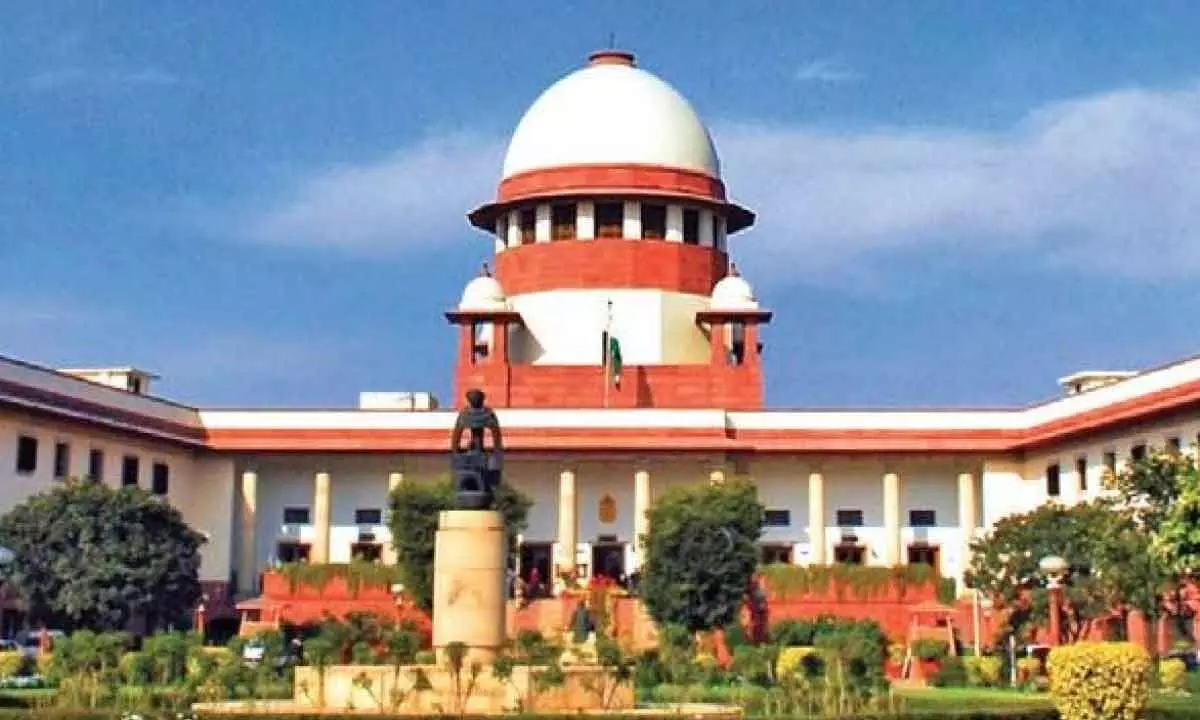Karnataka hijab ban: SC delivers split verdict

Supreme Court
Matter to be placed before CJI to set up appropriate bench
New Delhi: The Supreme Court on Thursday delivered a split verdict on the ban on hijabs in Karnataka's educational institutions and referred the matter to the Chief Justice of India for constituting a larger bench. While Justice Hemant Gupta dismissed the appeals against the March 15 verdict of the Karnataka High Court that had refused to lift the ban and held that hijab is not part of "essential religious practice" in Islamic faith, Justice Sudhanshu Dhulia allowed the pleas and observed that it is ultimately a "matter of choice".
"There is divergence of opinion," Justice Gupta, who was heading the bench, said at the outset while pronouncing the verdict on a batch of 26 petitions. He said he has framed 11 questions in his verdict and answers to them are against the appellants. The list includes questions on the ambit and scope of the right of freedom of conscience and religion under Article 25 and the right to essential religious practices under Article 25.
In view of the split verdict, the bench directed that the appeals against the high court verdict be placed before the Chief Justice of India for constituting an appropriate larger bench. While pronouncing his judgement, Justice Dhulia said the high court had probably taken a "wrong path".
"The main thrust of my judgment is that this entire concept of essential religious practices, in my opinion, was not essential for the disposal of the dispute. And the court probably took wrong path there. It was simply a question of Article 19(1) (a), its applicability and Article 25(1) primarily. And it is ultimately a matter of a choice, nothing more, nothing less," he said. Justice Dhulia said while deciding this case, the education of girl child was on his mind. "It is common knowledge that already a girl child primarily in rural areas and semi-urban areas has a lot of difficulties to face," he said, adding, "So are we making her life any better, that was also in my mind".
While pronouncing the verdict, Justice Gupta said he has framed 11 questions in his verdict. He read out the 11 questions, which include what is the ambit and scope of the right of freedom of conscience and religion under Article 25 and what is the ambit and scope of right to essential religious practices under Article 25 of the Constitution. "Whether fundamental rights of freedom of expression under Article 19 (1) (a) and Right of Privacy under Article 21 are mutually exclusive or are they complementary to each other," Justice Gupta said while reading out the questions.
He said another question framed in his verdict is whether the wearing of hijab is considered as essential religious practice and the students can seek right to wear headscarf to school as a matter of right.
"The answers, according to me, of all these questions are against the appellants. I am proposing to dismiss the appeals," Justice Gupta said. Justice Dhulia said that he has quashed the state government's February 5, 2022 order which banned wearing clothes that disturb equality, integrity, and public order in schools and colleges.
"In view of the divergent opinions expressed by the bench, the matter be placed before the chief justice for constitution of an appropriate bench," the bench said.







